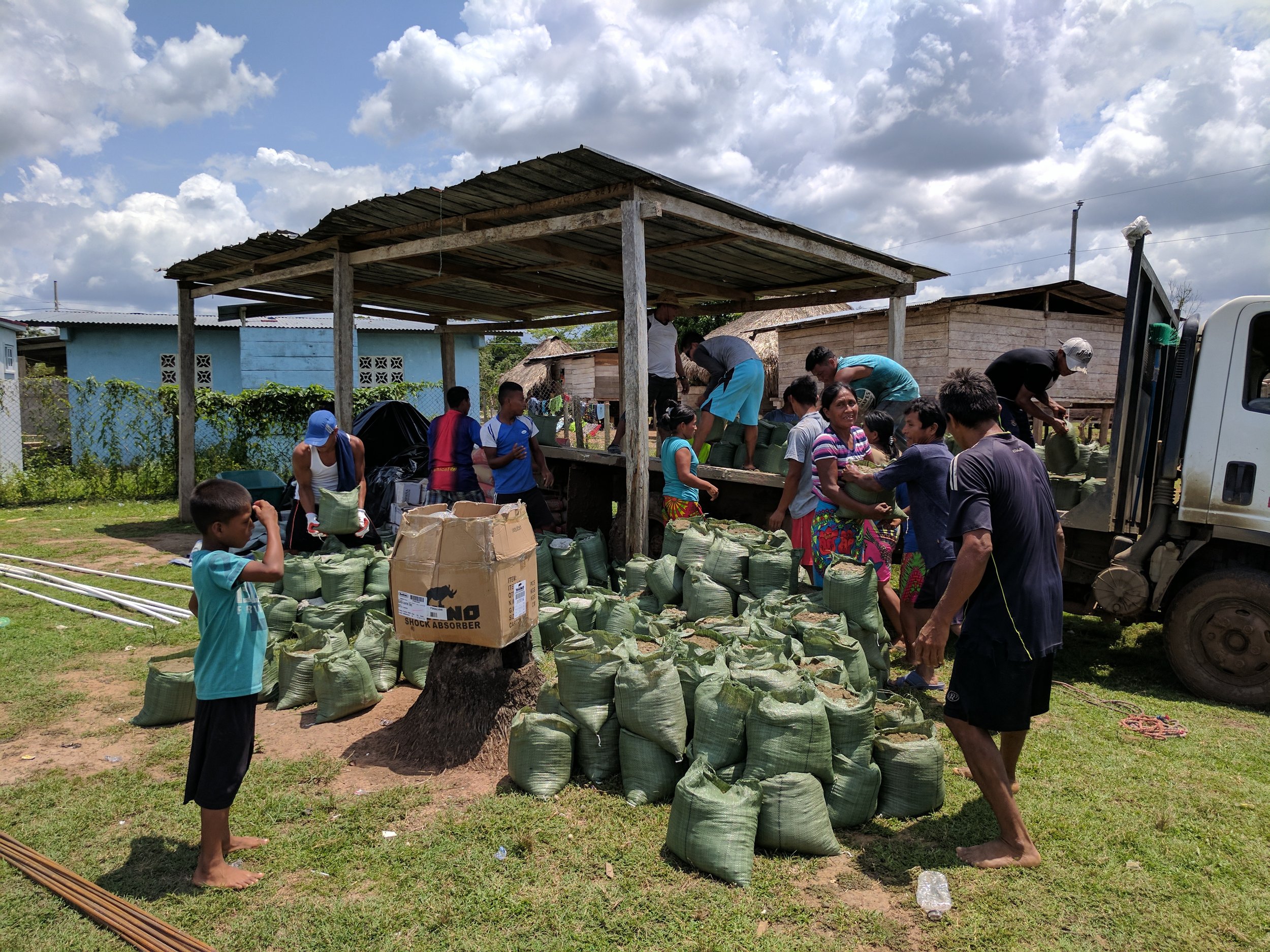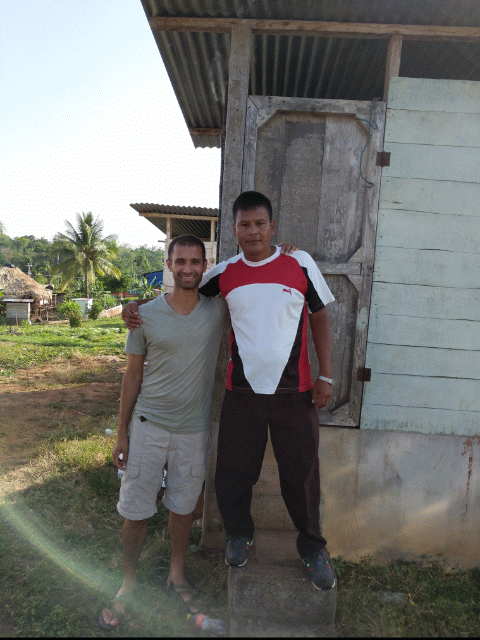LATRINES FOR EACH FAMILY.
Water borne illnesses are largely the result of water contamination due to a lack of adequate sanitation. We come alongside families to equip them with the tools to build their own sanitation infrastructure (ex: composting latrines), ensuring adequate sanitation at the household level, less water resource contamination in the broader community, and a support to the individual families through the creation of compost that can be used to increase agricultural productivity.
In most communities where we work, the water table is very high. Here, septic systems often fail or are insufficient due to prohibitive maintenance in the long term. We build composting latrines: a small structure with two chambers built above ground, and specially designed toilet seats that separate urine and feces. After use, dry material (soil, wood chips, grass, etc) is put into the chamber to cover the feces - reducing odor and keeping insects away. When the chamber is full, families switch to the other side and use that side instead. By the time the second chamber is full, the first chamber has had sufficient time to turn the waste into a nutrient rich compost material.
How You Can Help
$400 can provide a family with access to a safe and sanitary composting toilet near their home. We have been building dozens of latrines in Alto Playon as a part of a PeaceCorps project has been on-going since 2014.
How Behavior Change is Driving Adoption
It turns out that "keeping up with the Jones's" is a universal trait. When you see your neighbor wake up every morning and use their toilets, instead of walking into the river or the jungle - that changes your behavior. You want the same for yourself and your family. Once you use a clean and private toilet, you don't go back. Women and children are the primary beneficiaries and they no longer need to expend exorbitant time and effort to meet one of the most basic human needs.
Once families were interested in the latrines, they could get a latrine by earning points from:
- Attending health seminars (mandatory)
- Helping other families build their latrines AND
- Preparing building materials
The families with the most points would get their latrines first and we created a list of 30 interested families (50% of the community). The game created a sense of competition, investment and fun for the community. Finally, interested families each signed a contract stating they would provide 40% of the materials costs and 100% labor. They are committed to this project with money, time and effort.
Why did we have to use gamification for a toilet?
So that the families were invested. You'd be surprised how many development projects fail because families are just "given a hand out". In this case, the families who really value the latrine were intrinsically motivated to earn points and put in sweat equity. This also ensures that donor money is not going to waste.
Project Coordinator, Moiz Kapadia with Misael






